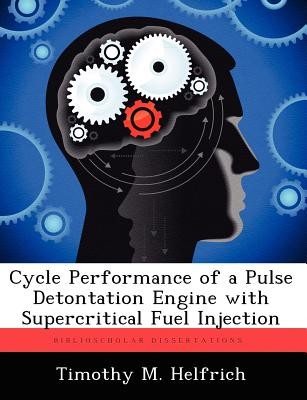
- We will send in 10–14 business days.
- Author: Timothy M Helfrich
- Publisher: BiblioScholar
- ISBN-10: 1249594774
- ISBN-13: 9781249594772
- Format: 18.9 x 24.6 x 1 cm, minkšti viršeliai
- Language: English
- SAVE -10% with code: EXTRA
Cycle Performance of a Pulse Detontation Engine with Supercritical Fuel Injection (e-book) (used book) | bookbook.eu
Reviews
Description
Pulse detonation engines (PDE) rely on rapid ignition and formation of detonation waves. Because hydrocarbon fuels are composed typically of long carbon chains that must be reduced in the combustion process, it would be beneficial to create such reduction prior to injection of fuel into the engine. This study focused on PDE operation enhancements using dual detonation tube, concentric-counter-flow heat exchangers to elevate the fuel temperature up to supercritical temperatures. Variation of several operating parameters included fuel type (JP-8, JP-7, JP-10, RP-1, JP-900, and S-8), ignition delay, frequency, internal spiral length, and purge fraction.
EXTRA 10 % discount with code: EXTRA
The promotion ends in 23d.02:27:55
The discount code is valid when purchasing from 10 €. Discounts do not stack.
- Author: Timothy M Helfrich
- Publisher: BiblioScholar
- ISBN-10: 1249594774
- ISBN-13: 9781249594772
- Format: 18.9 x 24.6 x 1 cm, minkšti viršeliai
- Language: English English
Pulse detonation engines (PDE) rely on rapid ignition and formation of detonation waves. Because hydrocarbon fuels are composed typically of long carbon chains that must be reduced in the combustion process, it would be beneficial to create such reduction prior to injection of fuel into the engine. This study focused on PDE operation enhancements using dual detonation tube, concentric-counter-flow heat exchangers to elevate the fuel temperature up to supercritical temperatures. Variation of several operating parameters included fuel type (JP-8, JP-7, JP-10, RP-1, JP-900, and S-8), ignition delay, frequency, internal spiral length, and purge fraction.


Reviews